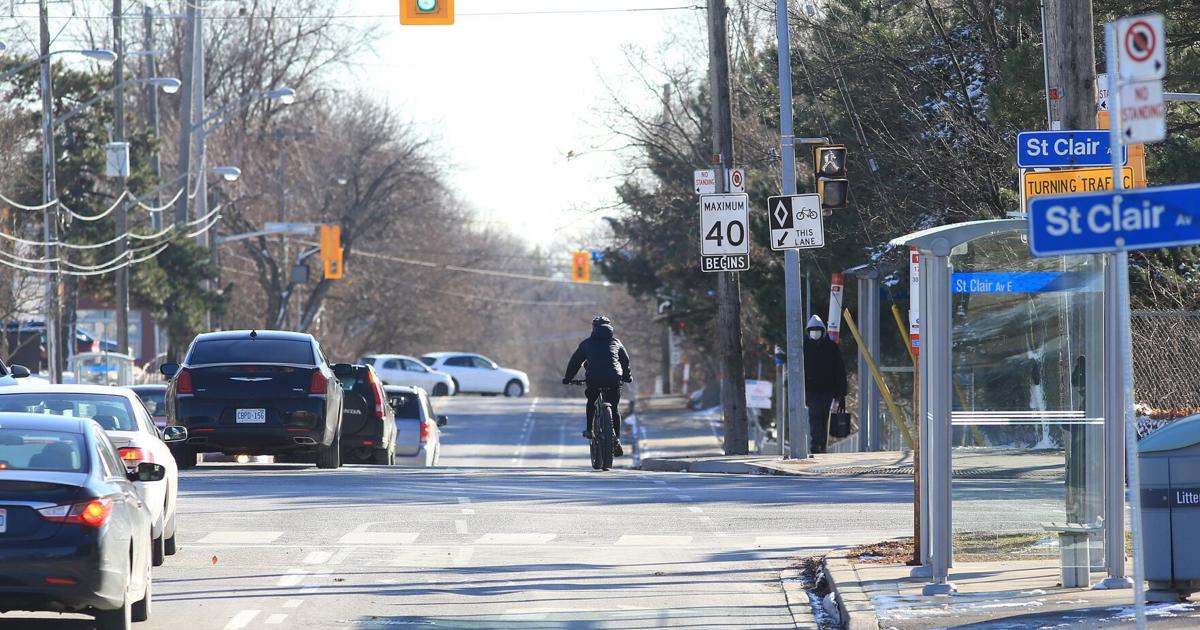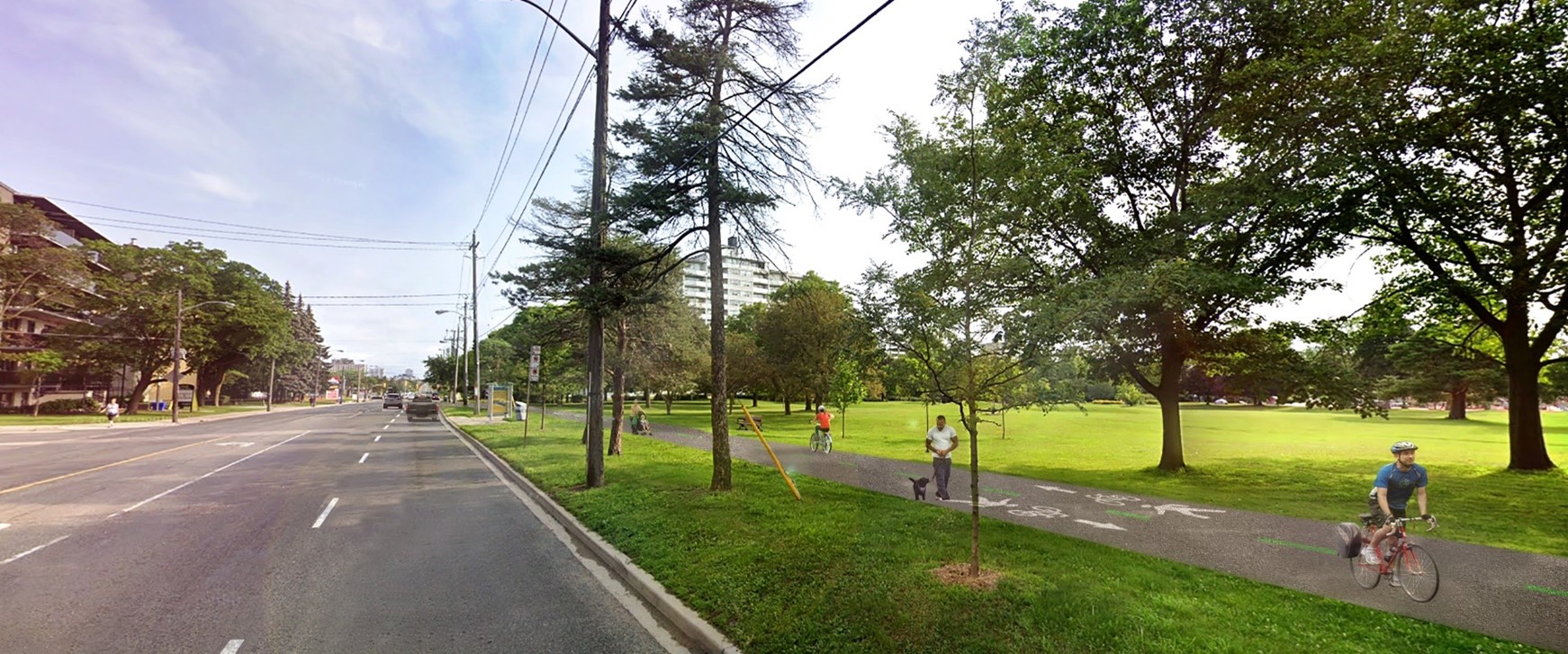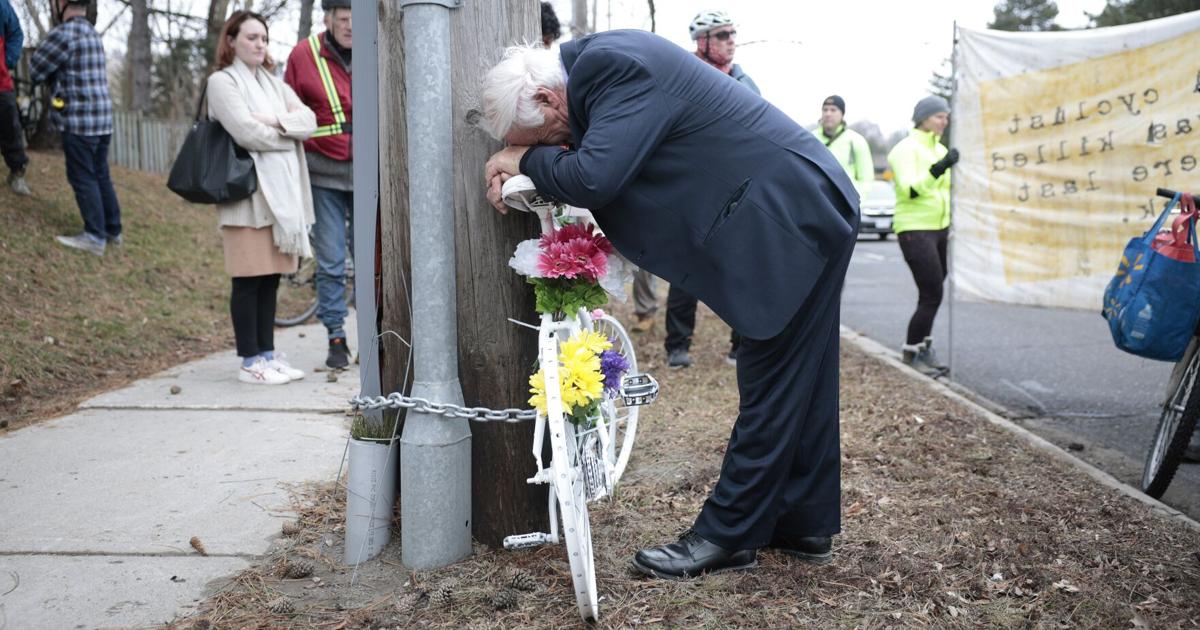afransen
Senior Member
Perhaps the way to get some of these folks on side would be to also propose alternative traffic calming approaches to the preponderance of traffic lights, which are also detrimental for cyclists.
I know this isn't meant to be an advocacy forum, per se, but I am all ears to hearing how those in this space feel this kind of misinformation and anger can be countered, redirected or neutralized (the anger, not the people).
The sheer vitriol of those entitled Etobians really makes me miss my regrettably stolen e-bike. I would relish the daily opportunity to effortlessly zip past all the fuming drivers stuck in gridlock along Bloor, forced to watch my booty short clad ass up in the air as a further spiteful, visual f*** you

Today's Toronto Star

‘These aren’t accidents’: Second cyclist death in Scarborough sparks anger over lack of bike lanes
Second cyclist killed within a month sparks anger in Scarborough about lack of investments in cycling infrastructure.www.thestar.com
From the article:
Coun. Paul Ainslie (Ward 43, Scarborough-Guildwood) said he was "shocked" when he heard about Monday's fatality, especially that it involved two cars.
"We really need to move toward a comprehensive, protected bike network that's connected in Scarborough," he said.
Parthi Kandavel, councillor for Scarborough Southwest, the ward where Monday's collision happened, was unavailable for comment.
According to Ainslie, residents tend to fall into two camps: those who don’t want bike lanes because "they won’t be used in the winter" and those "chomping at the bit for it."
But when they're installed and maintained, "you'll be quite surprised at how well they get used," he said.
Excellent idea, "take some air out of the balloon" by moving some of these meetings to an online format and still allow people to be heard but with more civilized moderation.I said I would come back to this...........
***
So, I think we need to put a few things out there.
1) We're never going to get rid of all the angry people. They are with us no matter the subject, often yelling about change of some type or another; but sometimes about the status quo.
2) What we may be able to do is achieve a bit less anger at the margins, and more balance in rooms. In the context of cycling, making a room more 50/50, or even with a clear majority in favour of cycling.
3) We may also be able to take some air out of the balloon in some cases, or just avoid certain meetings. (ie. address whatever issue w/online materials, rather than an in-person get together).
****
So how do we get greater balance? The obvious answer is to prioritize cycling in areas with more of it; and to invest in the least controversial cycling infra in areas that may be more adverse to it.
That obviously slows down the cycling program a bit; though not necessarily a lot, if those resources can be redirected to areas of high cycling uptake.
It may mean that in a more suburban context, the focus is mainly on valley/hydro corridor trails, and on secondary streets where 'the sell' is actually traffic calming and streets safe for kids to cross unsupervised etc. as opposed to focusing on commuter cycling on major roads. Major roads with ultra-wide lanes, and/or ultra-wide boulevards that could gain infra w/o cutting traffic lanes would continue to be invested in on a priority basis. While more bike parking, and Bikeshare expansion would be used to goose the size of the cycling community in such areas.
****
There is a certain sense to the above, where you cluster cycling infra where the demand is or can more easily be fostered, such as college campuses. On the other hand, it may mean missing ideal opportunities during road reconstructions that may not come up again for decades, and would certainly mean we wouldn't serve all parts of the City equally well.
****
Letting air out of the balloon, by comparison, is a strategy where you admit up front before any meeting that there is no consultation on whether to deliver cycling infrastructure, only on the details. Statements to that effect now appear on many/all of the electronic surveys when the City does consultation.
But that info isn't always communicated up front, ahead of a public meeting. If you can tell some of the ranters up front, that no, we're not nixing the bike lanes, no matter what you say, some may stay away/not be bothered. I'm a believer in meaningful consultation, but I also believe in admitting when public opinion will carry very little sway on the 'big choice' (applies as much to building a new subway). Tell people what we're really here to discuss......would you like parking on the north side or the south side, would you prefer a bit more parking or a bit more streetscaping; where is the most sensible spot to put a commercial loading zone etc.
****
Avoidance........there is merit to moving some meetings online, and/or not automatically holding in-person meetings. Online allows for moderation, people can be muted or booted entirely from the chat.
While not having a meeting can be fair too, when we're honest about what there really is to discuss in a given case. Sometimes there is really is precious little input that would be productive even if everyone were well intended; and a online survey/design panels is more than reasonable.
****
In the end, I favour a mix of the above. It makes sense to me to build demand for cycle tracks before they go in, to the extent practical. You do this by spreading cycling infra from areas of strong cycling uptake, outwards. Clearly, Bloor West Village actually follows that logic to a great degree but has been more controversial anyway; so lets admit, clustering infra in cycling-friendly areas is not a panacea; but it may allow for more expansion, more quickly with less fuss, on average.
Equally, I think being forthright about what's not up for discussion; and what is; as well as moving more things online, makes all the sense in the world.
Perhaps the last thing I'll throw out, is that idea that public meetings might be better delivered, in some cases, with no presentation as such, but rather staff available to answer questions, at individual stations/displays.
This style of meeting has the benefit of generally nixing booing or heckling; though the odd rude person may be more in-your-face.
I'm not set on any single strategy; just in favour of whatever makes it easier to deliver a safer city with a more balanced transportation system sooner.
Forgive my ignorance, but I'm not familiar with how the process works at City Council. Can the councillor representing a ward where there is proposed new cycle infrastructure effectively block it or can they be outvoted by those who support?
It's much harder to yell at someone who is sitting across the table. I've rarely seen hecklers at public meeting events that are divided into breakout groups or station-like information boards with involved parties able to answer questions 1on1....Perhaps the last thing I'll throw out, is that idea that public meetings might be better delivered, in some cases, with no presentation as such, but rather staff available to answer questions, at individual stations/displays.This style of meeting has the benefit of generally nixing booing or heckling; though the odd rude person may be more in-your-face...


Bathurst Complete Street
April Update: City Council has approved the installation of road safety and streetscape improvements on Bathurst Street between Steeles Avenue and Bainbridge Avenue and Raoul Wallenberg Road. A copy of the staff report is available at IE19.1. The City of Toronto has approved the installation of...www.toronto.ca
Ainslie and McKelvie in Scarborough are both inclined to support cycling and pedestrian infra, the former more than the latter.
The other Scarborough Councillors...........may be less enthusiastic.






